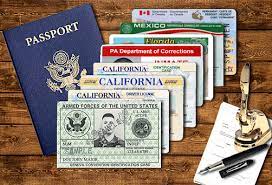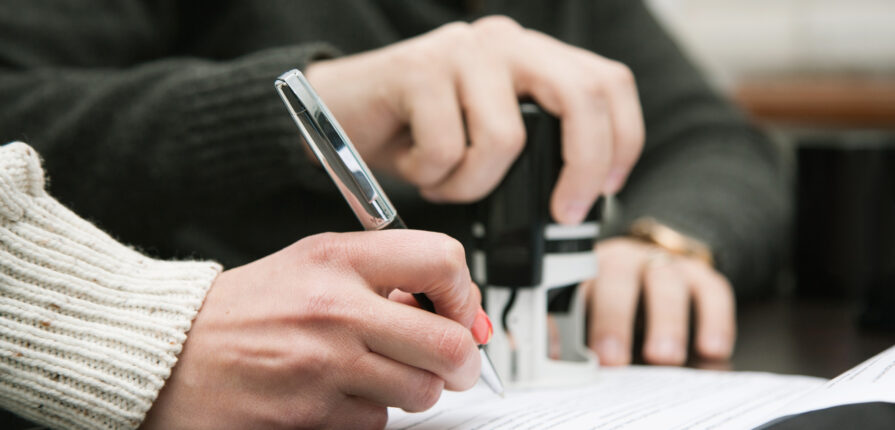Having a document notarized is a straightforward process for the most part. You bring the notary the document, he or she verifies your identity, and then the notary watches as you sign it.
To ensure the process goes as planned, though, you’ll need to bring a few basic items to the signing.
Here’s how you get a document notarized and what you need to bring:
- Fill out and bring the document that needs to be signed.
- Have an acceptable form of identification.
- Be ready with payment for notary fees.
- Ensure all parties involved in the signing are present.
And that’s it.
But while that sounds simple and straightforward, it’s still helpful to go into the process with as much info as possible. With that in mind, here’s what you need to know about each of these elements – and how you can make the process as easy as possible.
1. The Document
It should go without saying, but you can’t expect a notary public to perform the desired notarial act unless you bring him or her the document.
But if you really want your notarization to go quickly, there are a few things you can do to make the process easier.
For instance, you can have all of the necessary fields filled out except the signature. This allows you to come to your appointment, sign the document quickly, and be on your way.
Just make sure you don’t accidentally sign anywhere. Most notarial acts require the signer to sign the document in the physical presence of the notary, so hold off on signing your document until you reach the notary’s office.
2. Identification
One of the primary duties of a notary public is to verify the signer’s identity to prevent fraud and forgeries. This is particularly important for sensitive financial documents like grants and wills.
And the only way to do that is to require a certified form of identification as a part of the notarization process.
That’s why it’s essential to bring you ID with you – and to make sure your notary will accept it.
And to make things a bit more complicated, acceptable forms of identification for notaries varies depending on the notary’s state of commission.
As a general rule, your ID should have certain common elements:
- Your photo
- The issuing authority
- Your Signature
- A description of your person (e.g. weight, hair, eyes, sex, etc.)

Under these guidelines, most states allow the use of a driver’s license, state-issued identification cards, and military IDs.
But it’s always advisable to contact your notary in advance to ensure you bring the correct ID. Better safe than sorry!
3. Notary’s Payment/Fee
It may seem lame that you need to pay notary fees, but notaries are professionals, which means you’ll have to be prepared.
Thankfully, most notarizations don’t cost much, and some states even limit how much a notary can charge.
For instance, in Florida a notary public may not charge more than $10 for each notarized signature.
The best course of action is to check with your notary to determine their fees and bring the necessary payment. This lets you plan ahead and get your document notarized as quickly as possible.
4. All Parties Involved
Not all notarizations are for one person’s signature. For many documents (especially binding contracts), you’ll need multiple signatures that have to be notarized.
While it’s possible to have each signature notarized separately – and even by different notaries – it’s not convenient. You’ll also be on the hook to pay notary fees for every signing.
That means the easiest – and probably cheapest – way to get your document notarized is to have all parties present for the signing. Your document will be 100% signed and notarized with minimum hassle.
Mobile Notary
If you are habitually forgetful or worried that you’ll leave your identification, the document, or the notary public’s payment behind, you can always choose to hire the services of a mobile notary instead.
Mobile notaries are also a great option if you don’t know where to get something notarized.
Rather than commuting to his or her office, a mobile notary will come to you and perform the service. The only catch is that mobile notaries are allowed to charge more than standard notaries, so keep this in mind when deciding whether or not it’s the right choice.
You should also remember that a mobile notary will need a scheduled time and location in advance – so plan accordingly.
Even if you choose to hire a mobile notary, you should still gather your document, have an acceptable form of identification on hand, be ready to pay the notary, and have everyone ready to sign.


